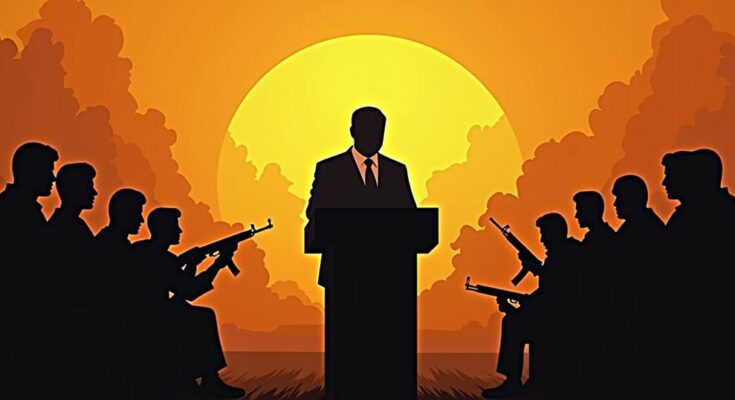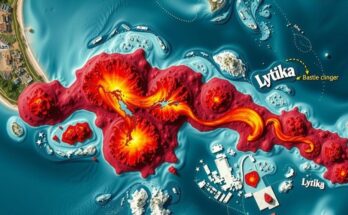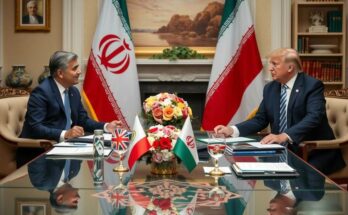Israeli Prime Minister Benjamin Netanyahu addressed the U.N. General Assembly, confirming Israel’s ongoing military operations against Hezbollah and the threat posed by Iran. The conflict in Lebanon has dramatically escalated, leading to significant casualties. This violence is part of a larger Israel-Gaza war, initiated by Hamas’s attack in October 2023, which has severely impacted the humanitarian situation in Gaza. U.S. support for Israel continues despite political tensions over the conflict.
In a stark address to the United Nations General Assembly, Israeli Prime Minister Benjamin Netanyahu affirmed Israel’s commitment to continue its military operations against Hezbollah in Lebanon. As preparations for a potential ground invasion intensify, Netanyahu emphasized the threat posed by Iran, indicating that Israel must defend itself against conflicts orchestrated by Tehran. He stated, “There is no place in Iran that the long arm of Israel cannot reach, and that is true of the entire Middle East.” Over the past week, Israel has escalated its military engagement in Lebanon, resulting in attacks that have significantly weakened Hezbollah leadership and have reportedly led to over 600 casualties, according to Lebanon’s Health Ministry. As the conflict persists, the exchange of hostilities between the Israel Defense Forces and Hezbollah continues, further exacerbating the humanitarian situation in the region. This ongoing violence occurs amid the backdrop of the broader Israel-Gaza conflict, characterized by intense military actions following Hamas’s unprecedented cross-border assault on October 7, which resulted in approximately 1,200 Israeli fatalities and multiple civilian abductions. The sustained conflict contributes to a dire humanitarian crisis in Gaza, where Israeli military operations have resulted in substantial casualties and widespread devastation.
The current conflict between Israel and Hezbollah is situated within the broader context of historical tensions in the Middle East, notably the Israeli-Palestinian conflict which dates back to before the establishment of the state of Israel in 1948. In recent months, the Israel-Gaza war has significantly altered regional dynamics, with Israel launching extensive military operations in response to Hamas’s attacks. The ongoing violence has led to unprecedented levels of displacement and humanitarian crisis in Gaza, prompting significant international concern. Furthermore, U.S. support for Israel complicates the situation, as American arms and political backing continue despite rising tensions between Israeli leadership and various U.S. political figures. This geopolitical strife underscores the intense historical animosities and the complex interplay of regional power struggles.
In conclusion, Prime Minister Netanyahu’s recent remarks at the United Nations signal Israel’s unwavering stance against Hezbollah and its broader strategy against Iranian influence in the Middle East. The conflict in Lebanon, compounded by the ongoing humanitarian crisis in Gaza, illustrates the profound complexities and escalating tensions in the region. As military operations continue, the international community watches closely, acutely aware of the humanitarian implications and the historical contexts that sustain these confrontations.
Original Source: www.washingtonpost.com




